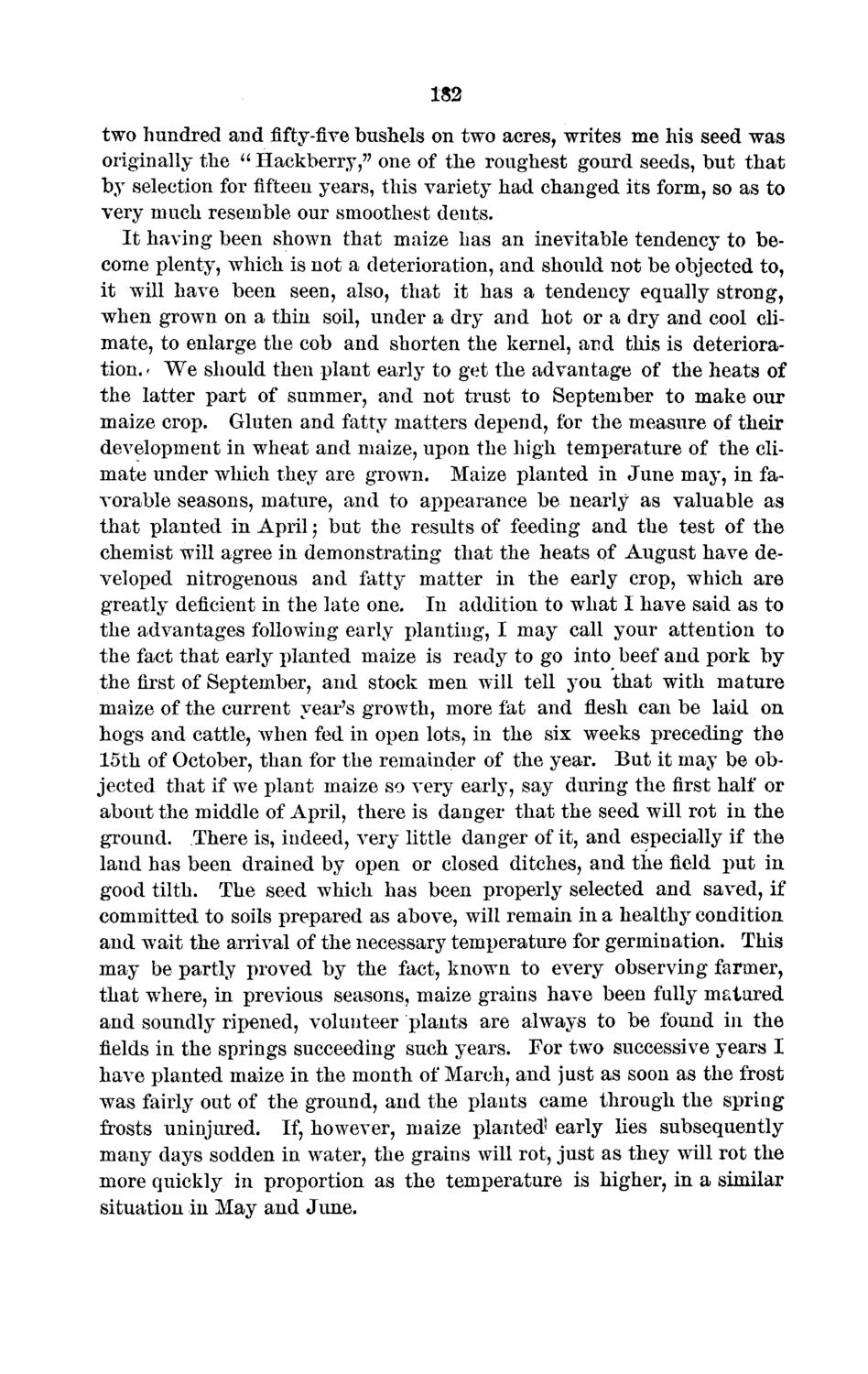| |
| |
Caption: Board of Trustees Minutes - 1872
This is a reduced-resolution page image for fast online browsing.

EXTRACTED TEXT FROM PAGE:
182 two hundred and fifty-five bushels on two acres, writes me his seed was originally the " Hackberry," one of the roughest gourd seeds, but that by selection for fifteen years, this variety had changed its form, so as to very much resemble our smoothest dents. I t having been shown that maize has an inevitable tendency to become plenty, which is not a deterioration, and should not be objected to, it will have been seen, also, that it has a tendency equally strong, when grown on a thin soil, under a dry and hot or a dry and cool climate, to enlarge the cob and shorten the kernel, and this is deterioration. > We should then plant early to get the advantage of the heats of the latter part of summer, and not trust to September to make our maize crop. Gluten and fatty matters depend, for the measure of their development in wheat and maize, upon the high temperature of the climate under which they are grown. Maize planted in June may, in favorable seasons, mature, and to appearance be nearly as valuable as that planted in April$ but the results of feeding and the test of the chemist will agree in demonstrating that the heats of August have developed nitrogenous and fatty matter in the early crop, which are greatly deficient in the late one. In addition to what I have said as to the advantages following early planting, I may call your attention to the fact that early planted maize is ready to go into beef and pork by the first of September, and stock men will tell you that with mature maize of the current year's growth, more fat and flesh can be laid on hogs and cattle, when fed in open lots, in the six weeks preceding the 15th of October, than for the remainder of the year. But it may be objected that if we plant maize so very early, say during the first half or about the middle of April, there is danger that the seed will rot in the ground. There is, indeed, very little danger of it, and especially if the land has been drained by open or closed ditches, and the field put in good tilth. The seed which has been properly selected and saved, if committed to soils prepared as above, will remain in a healthy condition, and wait the arrival of the necessary temperature for germination. This may be partly proved by the fact, known to every observing farmer, that where, in previous seasons, maize grains have been fully matured and soundly ripened, volunteer plants are always to be found in the fields in the springs succeeding such years. For two successive years I have planted maize in the month of March, and just as soon as the frost was fairly out of the ground, and the plants came through the spring frosts uninjured. If, however, maize planted^ early lies subsequently many days sodden in water, the grains will rot, just as they will rot the more quickly in proportion as the temperature is higher, in a similar situation in May and June.
| |